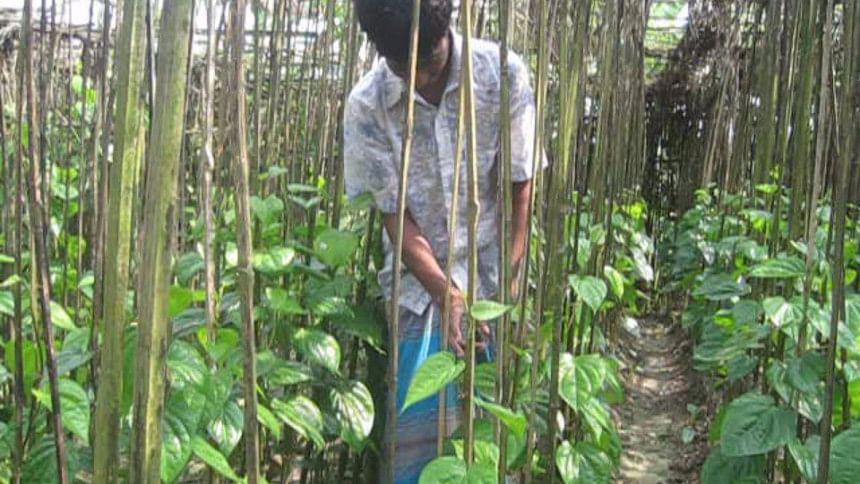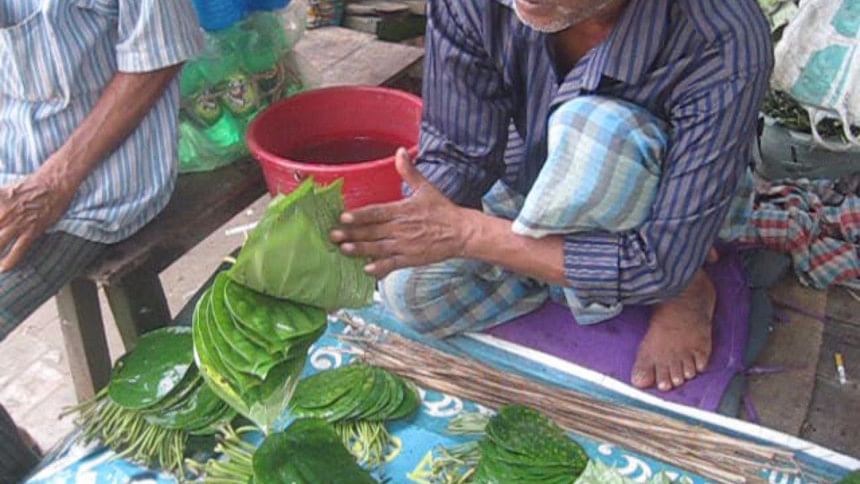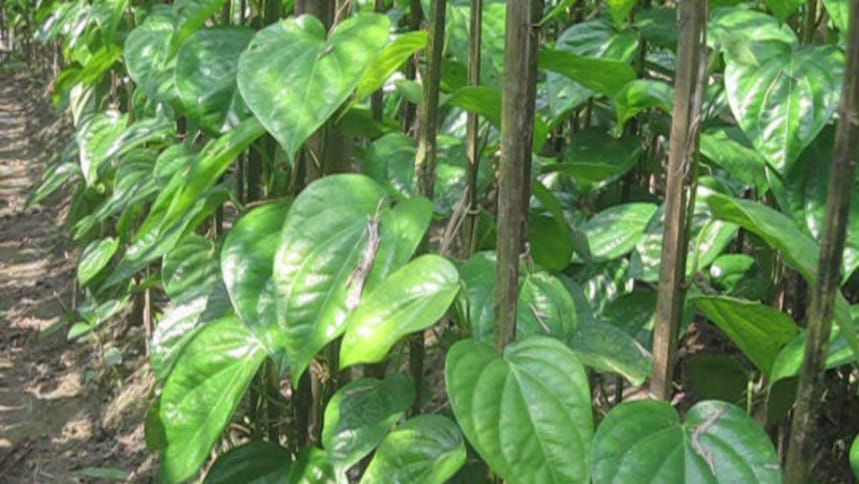Contract farming to be made compulsory for betel leaf export to EU

The government is set to enforce contract farming arrangement to ensure export of safe betel leaves to the European Union, an official of the agriculture ministry said.
The move comes with a view to convincing the EU to lift a ban on betel leaves from Bangladesh, enforced in February last year after repeated detections of bacterial contamination in consignments shipped from the country.
Priority will be given to shipment of betel leaves grown on contract farming arrangements, said Anwar Faruque, director general of the agriculture ministry's seed wing.
But exporters wishing to ship to the EU must source betel leaves from the contract growers.
In line with the plan, the agriculture ministry has already identified nine districts to grow safe betel leaves.
The districts are: Bagerhat, Barisal, Chuadanga, Jhinaidah, Kushtia, Moulvibazar, Munshiganj, Rajshahi and Sylhet.

Some 200 betel leaves farmers will preliminarily be selected. The selection will then be narrowed down to 100 by Department of Agricultural Extension and exporters.
The 100 chosen growers will get training on production of safe and environmental hazard-free betel leaves and their packing to ensure smooth entry of the item to destinations in the EU, Faruque said.
Good Agricultural Practices (GAP) will be followed in betel leaf-producing zones, he said.
GAP are practices that address environmental, economic and social sustainability for on-farm processes and result in safe and quality food and non-food agricultural products, according to Food and Agriculture Organisation.
Phytosanitary certificates, which validate that the plant products are pest-free, will be issued to exporters based on recommendations from upazila agriculture officers of the selected districts, according to the decision of a meeting on export of betel leaves and vegetables to the EU.
The EU authorities had detected salmonella on betel leaves from Bangladesh as far back as 2010 before it decided to enforce a ban. For instance, in 2011-2012, there were 77 such notifications, said an audit report carried out by an EU team in 2013.
Following the ban, the agriculture ministry took various initiatives including framing of an action plan to ensure salmonella-free betel leaves export to EU. The action plan is likely to be finalised in a week.

The agriculture ministry also filed cases against eight firms for using fake phytosanitary certificates to export vegetables to the EU, while the commerce ministry cancelled export licences of four firms.
Faruque said the volume of betel leaves export to the EU might be low due to the tightened measures.
“Europe is a big market for vegetables. Our export will grow eventually if we can ensure export of safe and hygienic betel leaves and vegetables.”
Bangladesh is an important exporter of betel leaves, with the produce raking in $56 million in 2012. The main markets are the UK, Italy and Saudi Arabia, according to the EU audit report. The ban on betel leaf export to the EU is expected to expire on June 30.
The EU is one of the major markets for Bangladesh's $209-million fruit and vegetable export industry. The country fetched $105 million from vegetable and fruit exports in the July-February period of fiscal 2014-15, up 5 percent year-on-year, according to Export Promotion Bureau.

 For all latest news, follow The Daily Star's Google News channel.
For all latest news, follow The Daily Star's Google News channel. 



Comments